Casino Life magazine recently had the opportunity to interview Paul Pellizzari, Vice President of Global Social Responsibility for Hard Rock International, which is the first US-based gaming company to develop its own fully-immersive, branded casino-and-player interactive program for responsible gaming, called the PlayersEdge.
This program is intended to not only educate players about their own gaming decisions and choices, but to also educate the Hard Rock casino staff and managers on how to interact effectively with casino players on the topic of responsible gaming, including how to spot potential problems in players who may benefit from this educational program.
Starting with game facts and casino etiquette, PlayersEdge helps players understand their own behavior, identify risks of gambling, and develop positive play habits. For those whose gambling has gone too far, PlayersEdge offers the assistance of voluntary self-exclusion and referrals to professional help and counselling services.
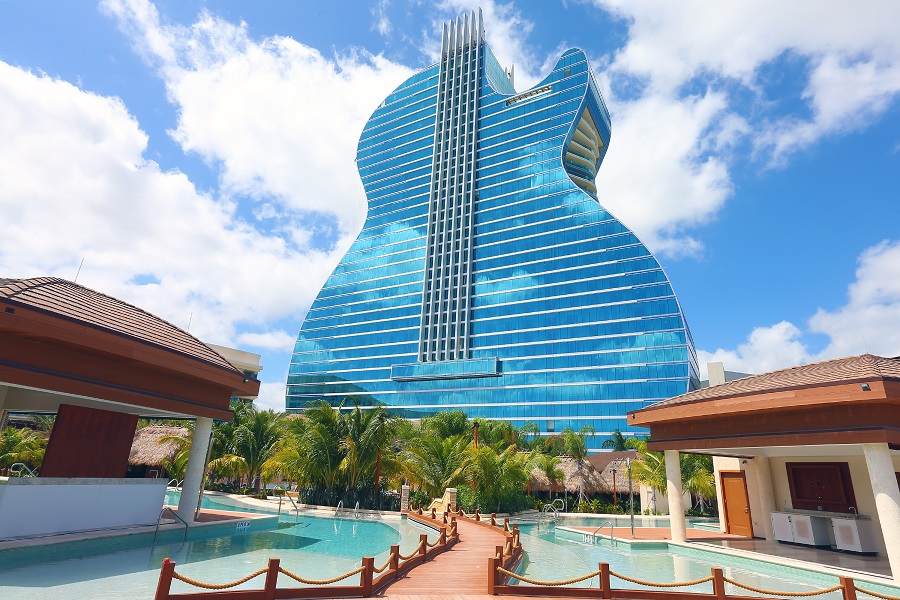
While many casino companies offer assistance with problem gaming, and usually offer not only instructional programming on their in-house TV channels, and social media platforms, but also brochures and phone numbers where to access help, Hard Rock International seems to be the first US-based gaming company to use players’ voices, consider the needs of all types of gamblers, and integrate this approach into the culture it wants for its employees . The goal appears to be to create an environment of mutual responsibility, in which both the casino – and the player – share jointly.
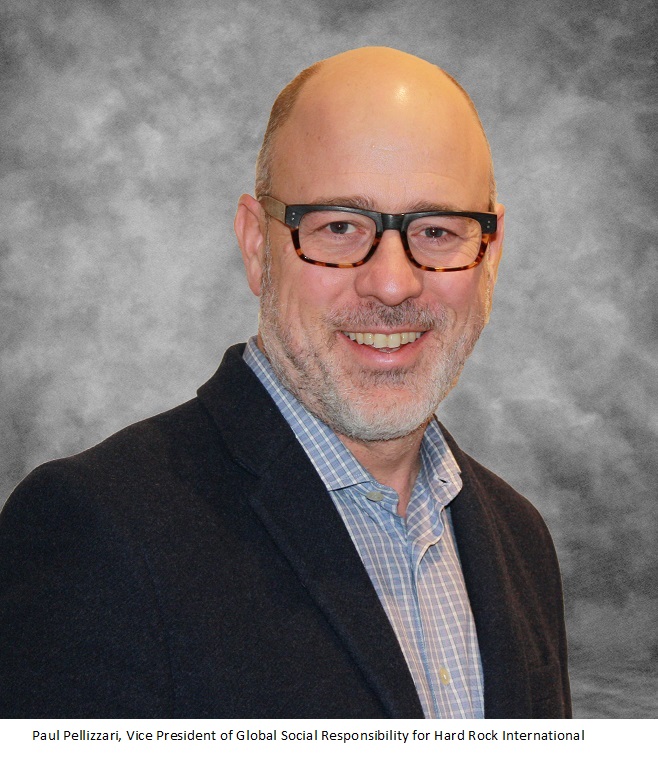 OK – so this sounds pretty good, so far. However, some older casino veterans, such as myself, are perhaps just a tad bit wary of this concept as a whole. Personally, after 36 years in the casinos of Las Vegas, and elsewhere in the USA, it seems to me that this is kind of taking the “political correctness” disease of today’s world a bit too far. After all – isn’t the idea of casinos supposed to be to keep the player playing? Or – is this kind of an old concept, like perhaps my own perspectives on the subject?
OK – so this sounds pretty good, so far. However, some older casino veterans, such as myself, are perhaps just a tad bit wary of this concept as a whole. Personally, after 36 years in the casinos of Las Vegas, and elsewhere in the USA, it seems to me that this is kind of taking the “political correctness” disease of today’s world a bit too far. After all – isn’t the idea of casinos supposed to be to keep the player playing? Or – is this kind of an old concept, like perhaps my own perspectives on the subject?
Well, that’s precisely why we are here to find this out directly from the man whose task it is to implement and promote this program: Paul Pellizzari, Vice President of Global Social Responsibility for Hard Rock International.
Paul, first I want to thank you for taking the time to speak with me. As you know, Casino Life Magazine takes great pride in interviewing leading industry CEOs and Senior Level Management members to better understand both the companies that they work for or own, as well as what the key attributes are for their success. Please tell our readers about yourself and your role at Hard Rock International.
Paul: As VP of Global Social Responsibility, I lead responsible gaming (RG) and social responsibility (SR) efforts for Hard Rock International and Seminole Gaming. For 10+ years I had a similar role at Ontario Lottery and Gaming, where our program won many awards, nationally and internationally. In terms of my career, I have worked in social responsibility since 1995, in a variety of roles including: program design and delivery; standards and evaluation; research; purpose-driven marketing; and stakeholder relations and communications.
Please explain to our readers just exactly what is the PlayersEdge concept, and why is it important.
Paul: PlayersEdge is a gambling education program that has been designed to make gambling facts, tips, positive habits relevant for all gamblers. As a casino operator, our role is to prevent and mitigate the effects of problem gambling. For those people who may be experiencing risk and harm, we provide support and referrals to professional services and voluntary self-exclusion.
For the vast majority of players, we can help improve gambling literacy. For new and casual players, we can help them understand how games work, rules and etiquette, strategies for setting time and money budgets, determining ‘what kind of player’ they want to be. For regular players, we can advise them on signs of risk, and steps to take when breaks are needed.
This segmentation strategy is key to PlayersEdge, and is critical to appealing to gamblers’ actual interest in learning about gambling and their own behavior.
We are launching PlayersEdge with messages that speak to different segments, and will refresh messages in the casino environment (digital messages, print collateral, social media, direct communications to players) so that players receive an ongoing stream of education.
The segmentation approach is also the foundation of the training that we provide to all guest-facing employees through an on-line training program, “Frontline Fundamentals”. For supervisors and managers, we add a 2-hour classroom session, “Supervisor Support”, to deepen knowledge of segments, signs of potential problems, on how to interact with guest who may be experiencing harm.
OK, but isn’t the idea behind any casino company to keep the player playing? Isn’t this kind of taking the “political correctness” of current times a bit too far?
Paul: PlayersEdge is designed to be relevant, interesting and engaging for players, and to add value to their experience. Casinos need gamblers to return to their properties year after year if the industry is to have a sustainable base of customers. When players understand gambling and its risks they are better able to manage their play in a self-directed fashion.
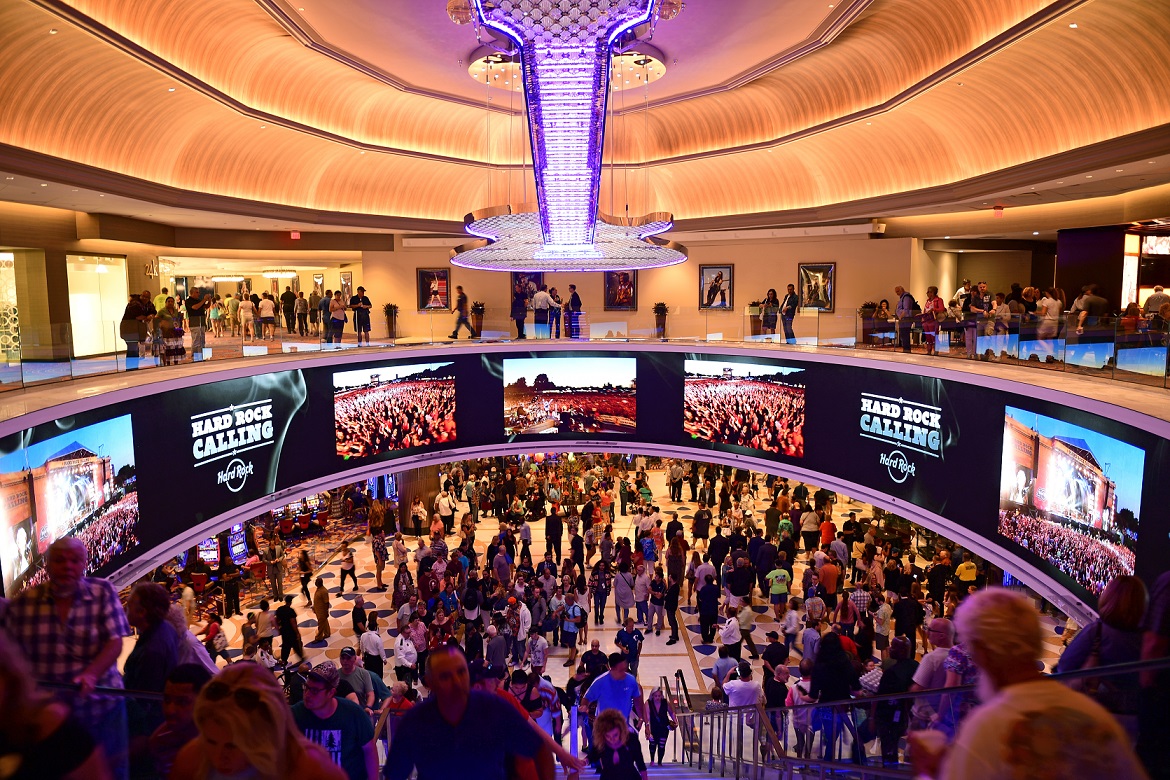
PlayersEdge is based on the “informed decision-making” approach in which Hard Rock provides education and support to enable healthy play habits.
Hard Rock cares about the well-being of our players and does not want to see them experience harm. Casino operators have an obligation to provide assistance and referrals to those who can benefit from professional support services. Hard Rock and Seminole Gaming have supported access to counseling services, as a promoter and a funder, for decades.
For employees, the PlayersEdge strategy clarifies and defines what their role is in helping players.
The measures of success, which will be evaluated, are: do players find PlayersEdge to be a valuable part of their experience? And, do employees find its information and the training helpful when they are on the gaming floor?
Aren’t “smart” or “educated” gamblers a risk to the casino? What if Hard Rock is so good at teaching proper gambling to it’s patrons that it creates so many advantage players that it kills it’s own profitability?
Paul: PlayersEdge will be teach gamblers about the realities of concepts like “house advantage,” so that they understand the facts of wagering. From a business perspective, “house advantage” still applies at all of our casinos.
We want people to enjoy the entertaining experience of wagering on an uncertain outcome. Hard Rock believes that players and the industry are better off with informed players.
Were any of these considerations even a part of the discussion before implementing this PlayersEdge program? If not, why not? And if Yes, how were these decisions handled?
Paul: Hard Rock believes that responsible gaming can and should be an integral part of customer experience and service. This support does not contradict the objective of providing customers with exciting experiences on the gaming floor, or at any of the other amenities we offer at our properties.
The field of responsible gaming and problem gambling have developed and matured over the last decade. Basic program elements --such as gambling education, training employees, referrals to voluntary self-exclusion and gambling counseling services— are well embraced by the industry.
Leading industry operators and organizations around the world, including the American Gaming Association and its members, provide and promote responsible gaming efforts. Hard Rock believes that this approach will continue to remain important for the future success of the industry.
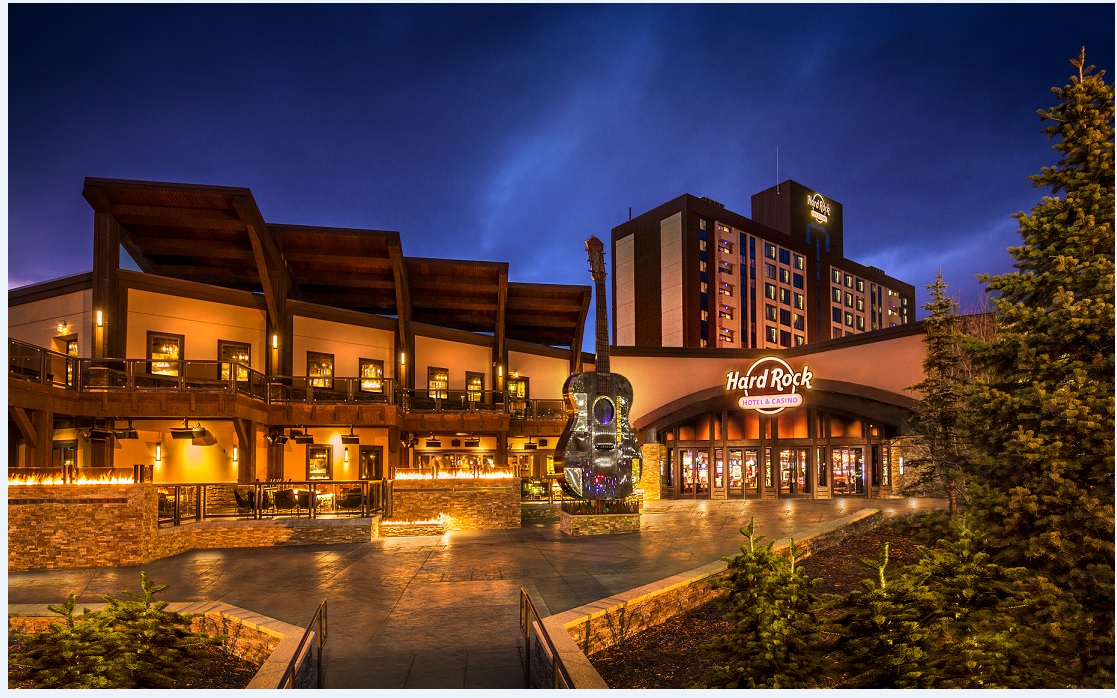
In your PR release you are quoted, in part, as follows: “We built PlayersEdge by listening to gamblers. We want to communicate the right information by appealing to how they actually think and behave in casinos.” – I’ve been a casino consultant, and gaming expert (55 books), for more than 30+ years, and I can tell you from direct and personal experience that casinos, casino corporations, and casino executives – including those with whom I had relations at the Hard Rock in Florida – have absolutely NO interest in “listening” to anything, much less gamblers – especially when it comes to casino operations, or what the players actually want, or say. Including the detailed information that I personally compiled for them in my confidential reports and studies. So – what’s different now?
Paul: The messages and information conveyed by PlayersEdge are communicated in a voice that sounds like players speaking to each other. Our work to create the program involved examining how gamblers think and talk about gambling, what kinds of information and messages are relevant and interesting to them, and the kind of voice in which they speak.
Historically speaking, many responsible gaming programs around the world have used voices and tones that sound like an external authority instructing players on “what is best for them”. Hard Rock wanted to more effectively reach our players, so we gave PlayersEdge a more direct-sounding voice.
In another part of the PR release, it says, in part, that the PlayersEdge was “… Informed by independent research and expert perspectives …” – Just exactly which experts, what research, and what were these “perspectives”?
Paul: Independent perspectives include: our gambling addiction services partner, as well as insights from academic research and “gray” literature . Hard Rock also undertook its own market research (obviously not “independent” but helpful) for the development of PlayersEdge.
We learned from “perspectives” that include: gambling literacy is a priority; operators have a role to play in educating and supporting players; and that information must be relevant to the needs of players.
Examples of perspectives that informed PlayersEdge:
1. The Florida Council for Compulsive Gambling collaborated on the development of PlayersEdge.
2. Insights gained from independent research provided foundational thinking for its development. Here are three specific examples:
• The Responsible Gambling Council: an example of one study:
https://www.responsiblegambling.org/rg-news-research/rgc-centre/research...
• The Reno Model: https://www.amazon.com/Responsible-Gambling-Primary-Stakeholder-Perspect...
• Responsible Gambling: Primary Stakeholder Perspectives: https://link.springer.com/article/10.1023/B:JOGS.0000040281.49444.e2
3. For those who are interested, I would recommend reading articles from the following researchers:
• Dr. Michael Wohl, Carleton University
• Dr. Sally Gainsbury, University of Sydney
• Dr. Robert Ladaceour, University of Laval
• Dr. Kevin Harrigan, University of Waterloo
• Dr. Dan Brown, University of Waterloo
• Dr. David Hodgins, University of Calgary
• Dr. Howard Shaffer, Harvard University
• Dr. Alex Blaszczynski, the University of Sydney
As general background, the field of responsible gambling program development and research has grown and matured over the last couple of decades. Different types of research are common, including market research, independent academic research, and industry-led applied research. Hard Rock is also a member of the National Center for Responsible Gaming, which funds independent research.
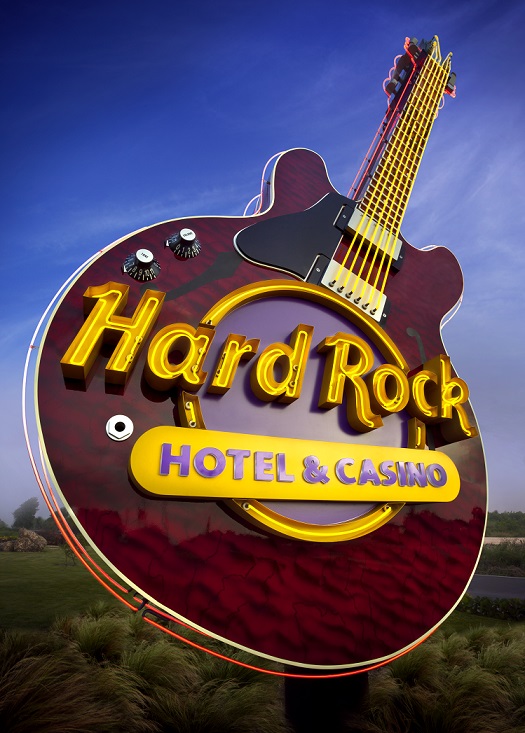
And in another part of the PR release it says, in part: “The segmentation strategy behind PlayersEdge is also the foundation for new training and culture-building programs rolling out at Hard Rock.” – Doesn’t this kind of sound like corporate double-speak? I mean, just exactly what does this mean? In my experience the staff of any gaming property that is faced with this kind of corporate “strategy” will both “tune out” and “sigh deeply,” and then mutter to themselves in the lunch room: “Oh poop! Another corporate doo-doo for us to deal with.” Or something to this effect. I don’t mean to poo-poo the principles here – I have always maintained that an informed player is a better player – but when it comes to your Staff, who have to implement this program, isn’t that kind of “dry company-speak” a little unclear?
Paul: PlayersEdge training and culture-building approach is designed to: define and clarify employees roles; build skills and knowledge that enable them to effectively provide information and supports; reinforce and model behavior. It is also designed to be interesting and engaging. We are and will continue to evaluate effectiveness.
This training includes the following components:
1. 30-minute online module, “Frontline Fundamentals” for guest-facing employees: explains the basics of problem gambling; explains the behavior signs that employees observe, what they mean within the context of player segmentation; what actions they can take; when to escalate to more senior managers.
Approximately 15,000 employees take this training
2. 2-hour classroom training “Supervisor Support” for
managers and supervisors: this training builds upon the online module. This class session is interactive, using role-playsand scenario-driven discussions, to build skills enabling employees to effectively interact with guests who demonstrate different behavior signs. It was co-designed and is co-delivered with the Florida Council for Compulsive Gambling and with Dr. Rory Reid, from UCLA.
This training will be updated and delivered every three years, and reinforced with short modules each year.
This year, approximately 1,000 supervisors and managers at Hard Rock and Seminole Gaming properties will complete this training. Employees evaluate the training based on four questions:
“I better understand:
• Basic facts about problem gambling and behaviors I observe in gaming environments
• The appropriate information I need to provide new, casual and regular players.”
“I am better able to:
• Effectively interact with and support players showing serious ‘red-flag’ signs
• Make responsible gaming information/support part of my job providing exceptional guest service.”
To date, the average score from the more than 600 employees (trained to date) is 4.6/5, across all 4 questions. Hard Rock will incorporate employee feedback as it evolves PlayersEdge and training, with a continued focus on making the program relevant and valuable to employees.
3. Culture-building: All Seminole and Hard Rock properties now have Responsible Gaming teams, comprised of manager or above level personnel from different operational functions (slots, tables, security, marketing, F&B, etc). These teams implement program elements (like PlayersEdge, training) and reinforce objectives of training on an ongoing basis through communications with staff (pre-shift meetings, back of house communications etc). They will also be critical in helping to evaluate effectiveness.
Over the next two years, other reinforcements will be added: a database to (anonymous to the player) track the interactions that employees are having; defining specific roles for different types of employees; short annual online training that expand upon and reinforce foundational training will be provided for front-line and supervisors.
And then there is another part of the company statement that refers to “Frontline Fundamentals.” Well, what exactly is that? How – precisely – are you expecting your employees, and management, to actually do this? Meaning in the field, and on the casino floor. And then do it without antagonizing the players, or causing the staff to be so uncomfortable with the concept that they’ll actively avoid situations where they become exposed to it?

Paul: For details on “Frontline Fundamentals” please see my earlier answer. You are right to ask about how we avoid “antagonizing the players, or causing the staff to be so uncomfortable.” Our training is designed to engage, not alienate players, and to empower employees to have constructive conversations. We equip employees with the right information – through the PlayersEdge platform – and demonstrate how to be helpful, empathic, and compassionate.
A critical step in the training is telling employees that they should always “ask permission” before providing a player with information. If someone does not want help, we do not force it on them. Employees find this step helpful, and generally consistent with how they provide customer service to guests.
In another part of the message, Hard Rock states, in part, that: “Starting with game facts and casino etiquette, PlayersEdge also helps players understand their own behavior, identify risks of gambling, and develop positive play habits.” – Does this mean that you and your Staff will actually tell the players the exact odds of the games, how much of a house-edge there is on, for example, penny slots (usually 14%-18% on the average, with some much more), or on table games where, for example in Blackjack, a Natural 21 which pays 6:5 instead of 3:2 adds another 1.4% to the house edge on the game and therefore isn’t good for the player, or that Blackjack where Dealer Hits soft 17 is also not good for the player, or how to read the Pay Table on Video Poker to actually identify the precise program to which the game plays, and so on. Will the PlayersEdge actually BE a “player’s edge” when you implement it at the Hard Rock?
Paul: PlayersEdge provides education on game facts and how players can plan their trips by doing things like setting budgets and sticking to them.
The problem is not the absence of information. Any casino gambler can find a range of technical information on odds, house edge, etcetera because it is already available. Slot manufacturers provide this type of detail, for those players who want it. The challenge we are trying address is framing information effectively, and then delivering a level of detail that is accurate, while not alienating anyone due to overly technical descriptions.
We want to provide engaging information that piques curiosity and allows people to explore more if they so choose. For example, one of our program launch examples is “why should I split aces and 8s in blackjack”. On PlayersEdge.org we provide a direct explanation of basic strategy.
Thank you, Paul, for your time, and for sharing this with us, and the readers of Casino Life magazine






























